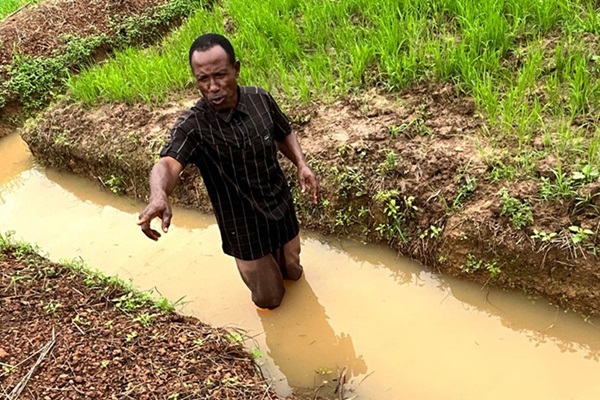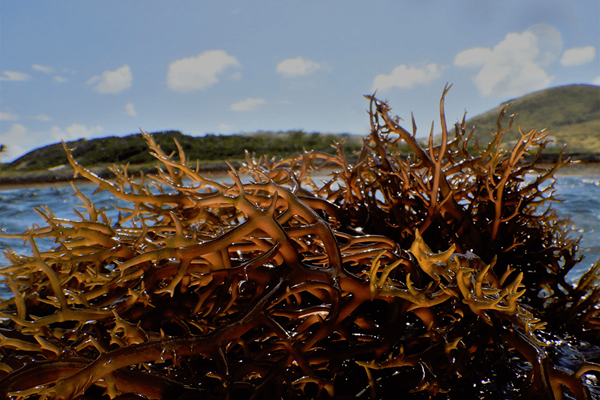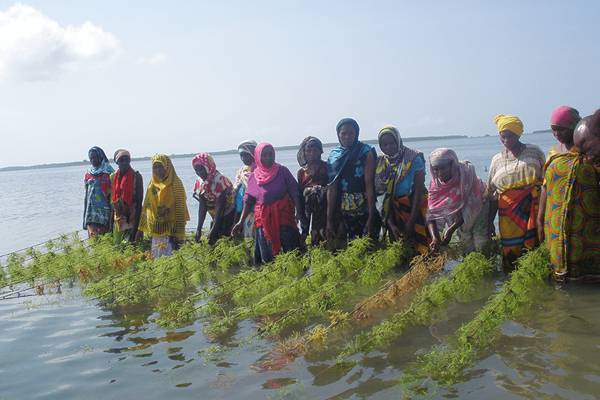The GSAAP will function as a collaborative platform to discuss key issues and challenges, innovations and findings in the development of aquaculture. In addition, and in close collaboration with donors and interested members, the GSAAP will facilitate the transfer and implementation of aquaculture innovations and advancements in science and technology, assisting in the formulation of sound and comprehensive solutions to effectively address problems hindering sustainable aquaculture development.
All interested stakeholders, including policymakers, academic institutions and private sector are encouraged to join the partnership.
Please email the GSAAP Secretariat for more information: [email protected]
Areas of work
Harnessing science, technology and innovation is key for transforming our agrifood systems.
GSAAP identifies several areas of work, where the areas of expertise of various partners intersect with the recognized needs of stakeholders striving to develop sustainable aquaculture. These needs, collected from various intergovernmental fora such as COFI and its Sub-Committee on Aquaculture, multistakeholder events such as the Global Conference on Aquaculture Millennium +20 and through the academic work of partners through their own programmes, are expected to address major constraints and blocking issues to aquaculture’s development.

Artemia
The International Artemia Aquaculture Consortium (IAAC) was presented during the Global Conference on Aquaculture Millennium +20, and echoed by the Eleventh Session COFI:AQ as a good example of international cooperation. The IAAC is hosted by the Network of Aquaculture Centres for Asia and the Pacific (NACA), with participation of over 40 partners from 28 countries. Members have identified priorities and already started initiatives related to Artemia.

Digitization of aquaculture
FAO harnesses the power of digital technologies to pilot, accelerate and scale innovative ideas with high potential for impact in food and agriculture, transforming digital solutions and services into global public goods. It aims to explore the responsible application and adoption of existing and frontier technologies, design and scale new services, tools and approaches to empower rural households and inspire youth entrepreneurship in food and agriculture.
-cfao.png?sfvrsn=74938216_11)
Ecological aquaculture
Effective governance of modern aquaculture must reconcile ecological and human wellbeing so that the industry is sustainable over time. An ecosystem approach to aquaculture is a strategy for the integration of the activity within the wider ecosystem such that it promotes sustainable development, equity, and resilience of interlinked social-ecological systems.

Seaweed dialogues
Recognizing not only the potential of algae but also constraints and challenges upon the realization of the potential, information and knowledge collected through multi-stakeholder consultations such as the Seaweed Dialogues can facilitate evidence-based policymaking and sector management in algae development at the global, regional and national levels.
Publications
![cc0459en_200[1]](/images/gsaaplibraries/default-album/cc0459en_200-1-.tmb-th600x450.jpg?Culture=en&sfvrsn=1b009d70_6)
Blue Transformation - Roadmap 2022–2030
19/09/2022
FAO. 2022. Blue Transformation - Roadmap 2022–2030: A vision for FAO’s work on aquatic food systems. Rome.
![cb9365en_200[1]](/images/gsaaplibraries/default-album/cb9365en_200-1-.tmb-th600x450.jpg?Culture=en&sfvrsn=df20b251_6)
Report of the Global Conference on Aquaculture +20 – Aquaculture for food and sustainable development
01/01/2022
Feeding an expected global population of 9 billion by 2050 is a daunting challenge that is engaging hundreds of millions of farmers, food processors, traders, researchers, technical experts...
Latest news

In Nigeria, small-scale farmers boost their food security by growing rice and fish together
14/06/2024
14 June, Rome – Traditional rice growers in Nigeria have found that by introducing fish into their fields they can boost their yields and cut costs, which means more money in their pockets to buy food for themselves and their families.
They did so by working with an ...

First meeting of the founding members
23/02/2023

